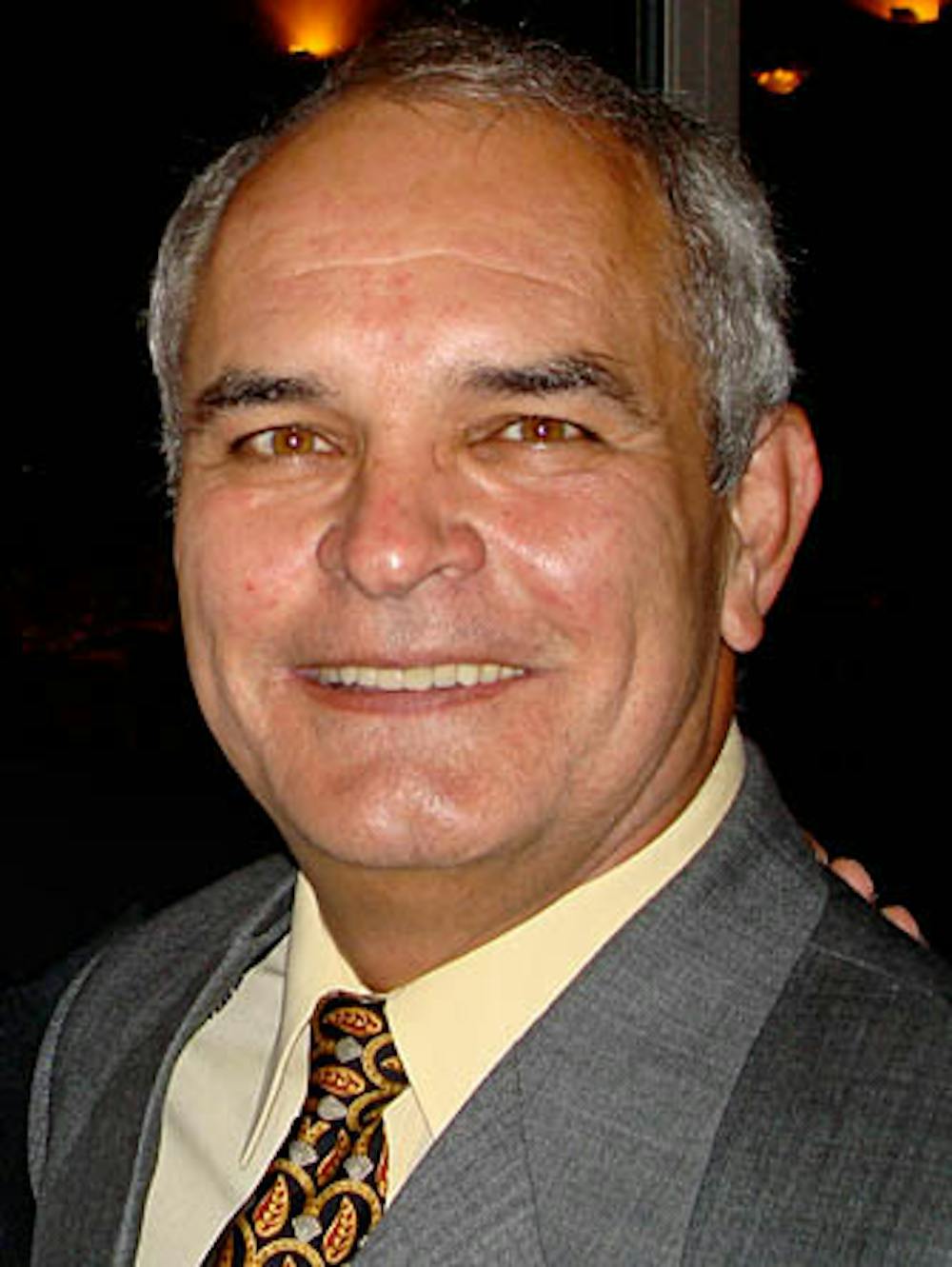When most people think about going to college, they envision earning one degree after four years of hard work. Dr. Bill Mallon, on the other hand, spent a total of 14 years at Duke, earned two degrees, and completed two residency programs.
Mallon, Trinity ‘73, Medical School ‘84, and House Staff ‘86 and ‘90 (which refers to a medical residency), defied expectations by becoming a member of four University class years. He holds a bachelor of arts degree in physics and math, a medical degree and two residencies in general surgery and orthopedic surgery.
In addition to his impressive academic career, Mallon spent several years as a professional golfer and has written 27 books about sports and the Olympics.
Mallon grew up in Framingham, Massachusetts, where he began cycling thanks to the influence of his father, a nationally competitive cyclist. At the beginning of ninth grade, when his family moved to Raleigh, Mallon was introduced to golf.
“I got pretty good at it pretty quick, so I kept playing,” Mallon said. He began the college search process with the intention of golfing during his undergraduate years.
“I was from Massachusetts. A bunch of people wanted me to go to Harvard,” Mallon said. “I was like, ‘there’s no way I’m going to Harvard, I’m going somewhere down south where I can play golf year-round.”
Mallon matriculated to Duke in 1969. He played on the Duke men’s golf team and was voted twice to the Outstanding College Athletes of America, winning 43 tournaments overall.
Ellis P. "Dumpy" Hagler was the men’s golf coach when Mallon played for the school. Mallon joked about Hagler being “a “babysitter” for the team on road trips.
Mallon said he only studied on rainy days when he couldn’t get out on the green to play. One of Mallon’s most memorable Duke experiences is when he and a friend from his dorm drove around the Campus Drive traffic circle 500 times consecutively, the last 10 backwards, which they both decided was “the Duke University record,” he said.
After graduating with a 4.0 GPA in his math and physics classes, Mallon entered the professional golf world in 1975. He joined the PGA Tour for four seasons from 1976 to 1979, finishing in the top-10 three times. He said that he went on to wi around 20 tournaments, including two back-to-back New England Opens in 1976 and 1977, and played in the 1977 U.S. Open.
After competing professionally, Mallon decided it was time to find a new career path. With an interest in sports medicine, which began after a shoulder injury in 1975, he decided to try his hand at medical school.
Mallon had not been on the pre-med track during his undergraduate time at Duke because he never thought he would become a doctor. He had earned a 3.1 overall undergraduate GPA, and when he was considering applying to medical school, two deans told him that he had no shot of getting in, he said.
“It spurred me to want to do it even more,” he said.
Despite the odds, Mallon was accepted into multiple medical schools and chose to come back to Durham to attend the Duke University School of Medicine.
While studying medicine, Mallon had the unique opportunity of being a chief resident for both the Duke varsity men’s football and basketball teams. Traveling with the players, Mallon sat on the teams’ benches and spent time in their locker rooms tending to their injuries and physical needs.
After first completing a general surgery residency, Mallon finished his orthopedic residency in 1990 and worked as a shoulder specialist for 24 years until his retirement from clinical practice in 2014. ln 2016, he moved to New Hampshire.
Although he no longer golfs professionally, Mallon has continued to be passionate about sports and is an expert in the Olympic Games. He grew up around competitive sports and began collecting books on the Olympics in the 1960s.
Mallon went on to write 24 of his own books about the Olympics. He later co-founded and became the president of the International Society of Olympic Historians. In 2001, Mallon was awarded the Silver Olympic Order, one of the highest awards of the Olympic Movement, in recognition of his contributions to the games.
Whether it’s pursuing academics or playing sports, Mallon thinks students should do what they wish and explore new fields and interests in the early years post graduation, he said.
“You can always go back and do the standard routes of med school, law school, business school, or go into some other career,” Mallon said. “But you're only young that one time and you should use your youth to explore what really interests you.”
Get The Chronicle straight to your inbox
Sign up for our weekly newsletter. Cancel at any time.

